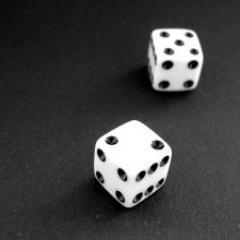結果
| 問題 | No.248 ミラー君の宿題 |
| ユーザー |
 Min_25 Min_25
|
| 提出日時 | 2015-05-19 02:11:35 |
| 言語 | C++11 (gcc 11.4.0) |
| 結果 |
AC
|
| 実行時間 | 81 ms / 5,000 ms |
| コード長 | 4,376 bytes |
| コンパイル時間 | 3,096 ms |
| コンパイル使用メモリ | 78,896 KB |
| 実行使用メモリ | 68,932 KB |
| 最終ジャッジ日時 | 2023-09-20 10:01:10 |
| 合計ジャッジ時間 | 2,475 ms |
|
ジャッジサーバーID (参考情報) |
judge12 / judge14 |
テストケース
テストケース表示| 入力 | 結果 | 実行時間 実行使用メモリ |
|---|---|---|
| testcase_00 | AC | 4 ms
6,000 KB |
| testcase_01 | AC | 4 ms
5,756 KB |
| testcase_02 | AC | 5 ms
5,864 KB |
| testcase_03 | AC | 5 ms
5,788 KB |
| testcase_04 | AC | 9 ms
5,872 KB |
| testcase_05 | AC | 9 ms
13,068 KB |
| testcase_06 | AC | 13 ms
13,100 KB |
| testcase_07 | AC | 16 ms
13,064 KB |
| testcase_08 | AC | 5 ms
13,268 KB |
| testcase_09 | AC | 53 ms
13,020 KB |
| testcase_10 | AC | 55 ms
13,180 KB |
| testcase_11 | AC | 42 ms
68,696 KB |
| testcase_12 | AC | 43 ms
68,672 KB |
| testcase_13 | AC | 56 ms
68,932 KB |
| testcase_14 | AC | 77 ms
68,696 KB |
| testcase_15 | AC | 81 ms
68,672 KB |
| testcase_16 | AC | 77 ms
68,668 KB |
| testcase_17 | AC | 28 ms
68,716 KB |
ソースコード
#include <cstdio>
#include <cmath>
#include <cstring>
#include <cstdlib>
#include <ctime>
#include <cassert>
#include <iostream>
#include <utility>
#include <algorithm>
#include <queue>
#include <functional>
#include <vector>
#include <map>
#include <set>
#include <complex>
#define getchar getchar_unlocked
#define putchar putchar_unlocked
using namespace std;
typedef long long int64;
typedef long long unsigned uint64;
typedef long double float80;
typedef unsigned short uint16;
typedef unsigned uint;
typedef unsigned char uint8;
const uint N_PRIMES = 14;
const uint STATE_MAX = 1 << N_PRIMES;
const uint BITS = 65;
typedef double prob_t;
uint64 primes[N_PRIMES];
uint phi_two[STATE_MAX];
uint state_min_two[STATE_MAX];
prob_t probs_cumu[STATE_MAX][BITS];
prob_t probs_cumucumu[STATE_MAX][N_PRIMES][BITS];
prob_t probs_same[STATE_MAX];
prob_t probs_pos[STATE_MAX];
prob_t probs_neg[STATE_MAX];
prob_t state_prods[STATE_MAX];
prob_t state_phis[STATE_MAX];
prob_t pows[BITS];
prob_t dp[STATE_MAX];
inline uint ilog2(uint64 x) {
union {
uint64 u64;
double d;
} n;
n.d = double(x) + 0.5;
return (n.u64 >> 52) - 1023;
}
void init(uint N) {
// O(2^N * N * log(max{E_i}))
const uint state_max = 1 << N;
pows[0] = 1.0;
for (uint i = 1; i < BITS; ++i) {
pows[i] = pows[i-1] * 0.5;
}
uint max_two = 0;
for (uint i = 0; i < N; ++i) {
uint64 phi = primes[i] - 1;
phi_two[i] = ilog2(phi & -phi);
max_two = max(max_two, phi_two[i]);
}
for (uint i = 0; i < state_max; ++i) {
for (uint j = 0; j <= max_two; ++j) {
probs_cumu[i][j] = 1.0;
}
probs_same[i] = 1.0;
probs_pos[i] = 1.0;
probs_neg[i] = 1.0;
state_prods[i] = 1.0;
state_phis[i] = 1.0;
state_min_two[i] = 1e9;
}
for (uint state = 1; state < state_max; ++state) {
uint f = state & -state;
uint pstate = state ^ f;
uint idx = ilog2(f);
uint two = phi_two[idx];
state_min_two[state] = min(state_min_two[pstate], two);
prob_t p = primes[idx];
probs_pos[state] = probs_pos[pstate] / p;
probs_neg[state] = probs_neg[pstate] * (1. - 1. / p);
state_prods[state] = state_prods[pstate] * p;
state_phis[state] = state_phis[pstate] * (p - 1.0);
prob_t pw = pows[two];
prob_t q = pw;
probs_same[state] = probs_same[pstate] * pw;
for (uint i = 0; i <= two; ++i) {
probs_cumu[state][i] = probs_cumu[pstate][i] * q;
if (i > 0) {
pw *= 2.0;
}
q += pw;
}
for (uint i = two + 1; i <= max_two; ++i) {
probs_cumu[state][i] = probs_cumu[pstate][i];
}
// x_0 y_1 + x_1 y_2 + ...
for (uint t = 1; t < N; ++t) {
pw = 1.0;
probs_cumucumu[state][t][1] = probs_cumu[state][0];
for (uint i = 2; i <= max_two; ++i) {
pw /= pows[t];
probs_cumucumu[state][t][i] = probs_cumucumu[state][t][i-1] + probs_cumu[state][i-1] * pw;
}
}
}
}
inline uint pop_count(uint n) {
return __builtin_popcount(n);
}
prob_t calc(const uint N) {
// O(3^N)
const uint total = 1 << N;
for (uint state = 1; state < total; ++state) {
if ( (state & (state - 1)) == 0) {
dp[state] = 1.0;
continue;
}
prob_t Q = state_phis[state];
prob_t P = state_prods[state];
prob_t expected_count = 1.0;
prob_t prob_not_repeat = 0.0;
for (uint left_state = (state - 1) & state; left_state > 0; left_state = (left_state - 1) & state) {
uint right_state = state ^ left_state;
prob_t p1 = probs_pos[left_state] * probs_neg[right_state];
prob_t p2 = probs_same[right_state]
* probs_cumucumu[left_state][pop_count(right_state)][state_min_two[right_state]]
* Q / P;
prob_t p3 = p1 + p2;
expected_count += p3 * (dp[left_state] + dp[right_state]);
prob_not_repeat += p3;
}
expected_count /= prob_not_repeat;
dp[state] = expected_count;
}
return dp[total - 1];
}
void solve() {
uint T; assert(1 == scanf("%u", &T));
assert(1 <= T && T <= 1000);
for (; T; --T) {
uint N; assert(1 == scanf("%u", &N));
assert(1 <= N && N <= N_PRIMES);
for (uint i = 0; i < N; ++i) {
assert(1 == scanf("%llu", &primes[i]));
assert(3 <= primes[i] && primes[i] < (1ull << 63));
}
init(N);
prob_t ans = calc(N);
printf("%.9lf\n", ans);
}
}
int main() {
solve();
return 0;
}
